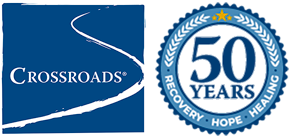Mental health affects how you feel, think and act. It can have an effect on your emotional, psychological and social well-being. When someone has a mental health disorder, it can interfere with their ability to carry out daily activities and relate to other people. Poor mental health can lead to low productivity, increased stress, strained relationships, negative thoughts, and isolation. It can also contribute to the development of substance use disorders.
According to the National Alliance on Mental Illness, mental health conditions affect approximately 1 in every 5 adults, and around 1 in 20 adults are living with a serious mental illness. Half of all mental health conditions develop by age 14 and 75 percent have developed by age 24. A variety of factors contributes to the development of mental health disorders including genetics, family history and life experiences. These conditions can develop as the result of trauma or abuse, but they do not always. Early detection of mental health concerns can allow people to get the help they need to manage or overcome these challenges.
General Signs and Symptoms of Mental Health Disorders
Some mental health disorders are more easily identifiable while others can be harder to differentiate from the common ups and downs of everyday life. For instance, everyone experiences times where they feel sad or hopeless, but that does not necessarily mean that they suffer from depression. Many people are able to bounce back fairly quickly and return to a more positive outlook on life. The severity of mental health disorders can vary, which makes them harder to diagnose if you do not know what you are looking for.
Understanding some of the general signs and symptoms of mental health disorders can make you more alert of what to look for in yourself or loved ones. Recognizing the signs can allow you to get someone the help needed before their mental health disorder becomes more severe and disruptive to their life. While the symptoms of mental health disorders can vary depending on the Specific condition, here are a few general warning signs to be alert for:
- Increased lethargy or lack of energy that keeps the person from completing daily tasks or engaging in activities they once enjoyed.
- General feeling of hopelessness or helplessness.
- Severe mood swings or uncharacteristic feelings of worry, anxiety, anger or confusion.
- Becoming more withdrawn and antisocial.
- Persistent negative thoughts or thoughts of self-harm.
- Self-medicating with drugs or alcohol to forget problems or overcome challenging or uncomfortable situations.
The Different Types of Mental Health Disorders
Mental health disorders affect men and women, young and old alike. Different types of mental health disorders exhibit different symptoms and not everyone is affected in exactly the same way. While you cannot control your genetic predisposition or unexpected life events, you can control how you respond when problems arise. Counseling, therapy and medication can help you to deal with the effects of a mental health disorder and live a happier and healthier life.
Anxiety
Anxiety is often characterized by persistent or excessive worry and fear over events that are non-life-threatening. Phobias, panic disorders, generalized anxiety and social anxiety are all forms of anxiety. Symptoms may include being restless, jumpy or apprehensive, fearing the worst, and having an upset stomach, headache, insomnia or rapid heart rate.
Bipolar Disorder
Bipolar disorder causes people to feel extreme highs and lows in their mood known as mania and depression. During a manic episode, a person may have a lot of energy, be overly happy or excited, exhibit impulsive behaviors and feel very restless. During a depressive episode, they may be irritable, lethargic, have trouble concentrating and show lack of interest in activities they once enjoyed.
Depression
Depression is more than just feeling sad. It interferes with a person’s daily life and makes it more difficult to complete even basic tasks. It can last for weeks or months and lead to problems with sleep, appetite, self-esteem, energy and concentration. People may feel helpless about their life, which can result in suicidal thoughts.
Post-Traumatic Stress Disorder – PTSD
While many people associate post-traumatic stress disorder (PTSD) to military service, it can also develop because of abuse, serious accidents or natural disasters. People with PTSD may experience flashbacks or persistent thoughts about the event, avoid situations that remind them of it, or remain in a state of hyper-vigilance where they are always on alert and startled easily.
Obsessive Compulsive Disorder – OCD
Obsessive-compulsive disorder (OCD) is characterized by having ongoing obsessions, compulsions, or both types of behavior. Symptoms include arranging and rearranging objects until they are perfect or symmetrical, repeating the same action or phrase a certain number of times, or having an excessive fear of germs. These obsessions and compulsions can be time consuming and anxiety-inducing.
Get Mental Health Disorder Residential or Outpatient Treatment at Crossroads
While there is no “cure” for many mental health disorders, through targeted therapy and counseling they can be managed to reduce their negative affect on everyday life. The causes and effects of these disorders can vary between men and women. Recognizing this important fact, Crossroads offers gender-responsive treatment tailored to each client’s individual needs. Men and women are treated separately so that they can focus on how these issues impact their life and develop strategic skills for overcoming these challenges. If a substance use disorder exists as well, there is also dual diagnosis treatment to address both mental health and addiction simultaneously to promote stronger recovery.
